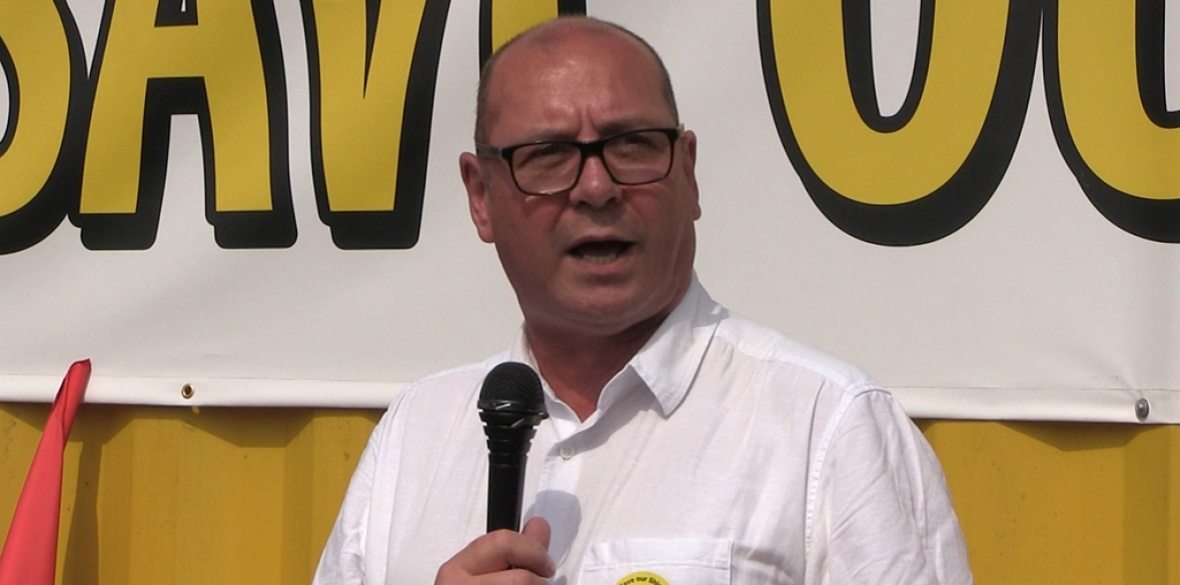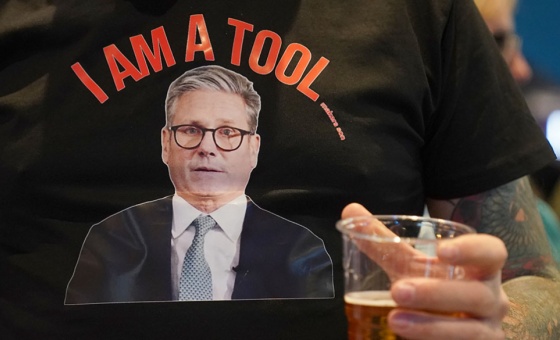This is the last article you can read this month
You can read more article this month
You can read more articles this month
Sorry your limit is up for this month
Reset on:
Please help support the Morning Star by subscribing here
CHANGE is coming. Covid-19 has seen to that. It’s coming to every aspect of our economy and working lives and left unchecked, in the hands of hard right, free-market ideologues it will bring unemployment, poverty, ill-health and misery at levels not seen since the 1920s.
Our immediate challenge, our duty as trade unionists, is to build a confident, powerful movement capable of shaping that change and ensuring working people and our communities are at its heart, not its victims for a generation or more to come.
If we’re to build back better, manufacturing must be central to our nations’ recovery and rebuild strategies, providing jobs and apprenticeships, making the products we need to green our economy and exporting the high-value goods we need to raise the capital to support our public services.
As we emerge from the lockdown and face the future challenges of uncertain trading relationships, the climate emergency and the need to level up our economy, it’s rebuilding our manufacturing heartlands that will provide the opportunities to do it.
Right now manufacturing is at a crossroads, key sectors are haemorrhaging jobs and facing a cliff-edge collapse in demand for products.
We can stop this and rebuild, but it will require more than a sticking plaster or a job club set up on the site of a once thriving industry.
Government must act with a sense of real urgency not yet seen and detail a clear plan and comprehensive industrial strategy to get our nations back to work.
Such a plan requires direct intervention and support for our world-class automotive and aerospace sectors, for aviation, hospitality and tourism devastated by lockdown and a looming recession.
It requires investment, including public ownership and strategic equity stakes, and support for a just transition and diversification plan to build what we need and to build it locally to support a greener, cleaner environment.
In my regular discussions with government, including with the Chancellor, I have kept our demand for a “national council for recovery” high on the agenda and presented a range of ideas for “shovel-ready” projects and state interventions that will both support and create jobs and transition our economy, while putting people and climate first on our road to recovery.
Such initiatives include:
• A major programme of manufacturing and retrofit for domestic housing, including insulation, double glazing, photovoltaic panels, heat pumps and energy storage capability that will help to green our housing and create thousands of jobs.
• Support for the design, engineering and UK manufacture of technologies to support carbon-neutral manufacturing and our wider net-zero carbon objectives.
• A government rethink on tidal power as a core element of mixed energy generation, including wind, solar and nuclear, while investing now in hydrogen generation and use. Clean energy and hydrogen must play a growing role, from replacing natural gas in our homes to powering our cars, buses, trains and lorries. State investment now will ensure the UK leads the world in these important technologies.
• Our world-class automotive sector needs urgent support on its journey to electrification, from a national charging infrastructure to the transitioning of UK component design, manufacturing and assembly operations. A vehicle replacement initiative now will see this high-value sector help drive our economy from a looming recession.
• Our aerospace sector is intrinsically linked to the fate of the wider aviation sector. An aircraft replacement initiative tied into any wider aviation support package is vital to protect thousands of jobs while we develop the new synthetic fuels and electric power systems to transition the sector to a greener future.
• Spending some £292 billion each year, government is a major purchaser of goods and services. Central to any joined-up industrial strategy to support UK manufacturing is a clear instruction to build local/buy UK when planning and supplying public projects. From infrastructure and housebuilding programmes, purchasing vehicle fleets and initiating new public transport networks to the installation of an in-home national high speed, fibreoptic broadband network, owned as a public asset and supporting UK cable manufacture.
These measures will set us on our journey toward the creation of a million-plus green jobs, while a job guarantee scheme alongside a clear state-led recovery and diversification plan will support good jobs now and shorten and lessen the impact of recession.
Countries including Germany, France and even the United States have already acted to safeguard their industrial base, protect skilled jobs, train and upskill their workforce and invest in new technologies.
Without the same level of intervention here, many of our manufacturers will struggle to survive.
My message to ministers is clear. Our people and communities deserve better. We will not tolerate continued austerity, millions unemployed and growing social inequalities. We can avoid a damaging, long-term recession, but we cannot do it with government sitting on its hands.
Meeting the challenges of Covid-19, Brexit and climate change head-on requires direct, strategic state intervention and genuine collaboration with industry and trade unions.
Unite will continue to play its part, we need you to step up and play yours.
Steve Turner is Unite assistant general secretary for manufacturing.











